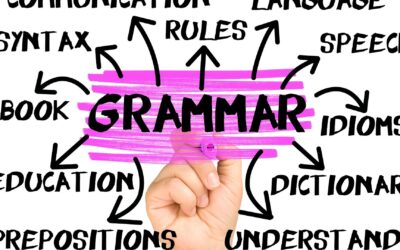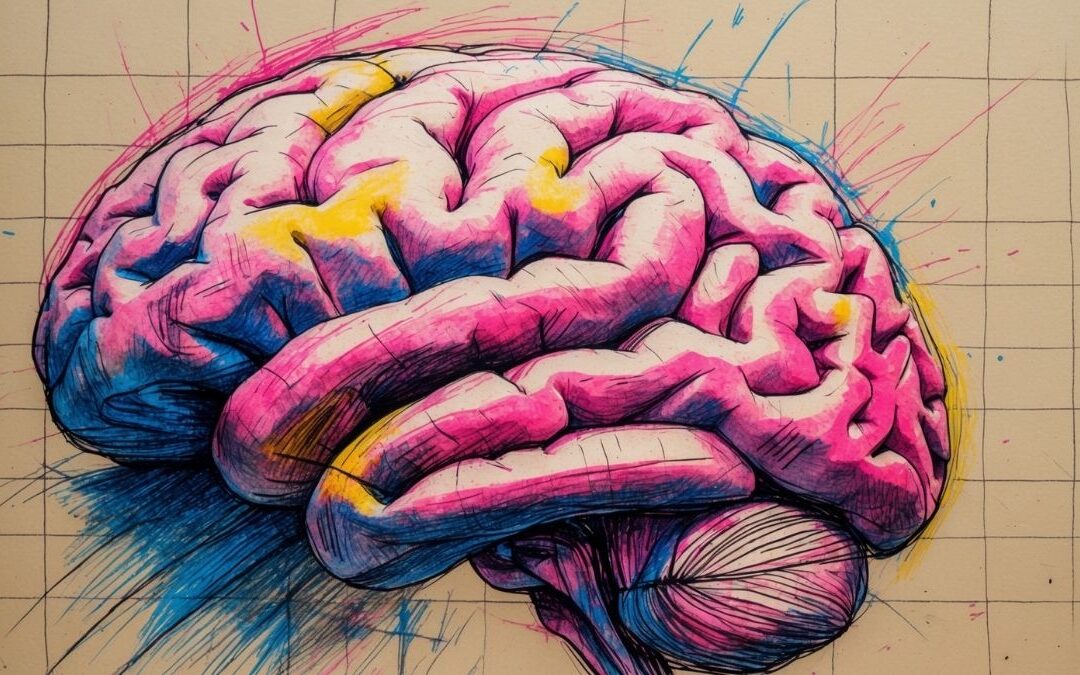Episode Transcript
This is your host Danny and this is grammar from English plus podcast. In today’s episode we’re going to continue talking about the English tenses the Learn English tenses series we’ve been doing for a while and we will talk today about the past perfect simple. But before we do that, let me invite you to become a patron of English plus podcast on Patreon. By becoming a patron, you will be supporting me to continue creating those episodes on a daily basis. And I have a lot of projects that I would like to create for English Plus, you will be helping me with your support. And by becoming patrons, you will have access to all these projects. For now you will get all the issues of English plus magazine, but I have other projects planned like interactive stories and practice files and a lot of other things. So become patrons of English plus on Patreon, the link is in the description of the episode. And one more thing of course, if you want to get the transcript of this episode, there is another link that will take you to the post on my website, English boss podcast.com. You can check out the transcript there. Now without further ado, let’s start talking about the past. Perfect simple.
Now to understand the past perfect, let’s study this example. First, Sara and Paul went to the same party last week. But they didn’t see each other ball left the party at 1030. And Sarah arrived at 11 o’clock. So when Sarah arrived at the body bowl wasn’t there. So we can say here when Sarah arrived at the body bowl had gone home. What does that mean? Did she see him? No she didn’t. He had gone home before she arrived. Well, this is the basic and the most important meaning of the past perfect simple when we want to talk about two things that happened in the past, and I want to show which one happened first, which one happened before we use the past perfect, simple. Now coming back to what I said I said he had gone home. So let’s check the form a little bit. What did we use, we use have but obviously because it’s fast we use it in its best form had as an auxiliary verb. And what about our main verb which is go in this case, we said gone. That is the past participle of the verb gone. So we can say that if we want to form the past perfect, we need to use the auxiliary verb had. And the main verb is always in the past participle. And by the way, if you want to contract head, you can say he apostrophe D, he’d gone home. And here you will just have to be careful not to confuse this apostrophe D with would because both of them are contracted the same way. But sometimes you might see apostrophe D but you will need to figure out whether this is had or would. But this is for another time we will talk about the maybe in another episode. But for now let’s get back to the past perfect, simple. So we said Sarah and Paul went to the same party Sarah arrived at 11 o’clock Paul left at 1030. If I just want to say that ball left before she arrived, I can say when Sarah arrived at the party, Paul had gone home or Paul had left that means he left before she arrived at the party. Now you might ask here What’s the big deal we can use after and before? What if I say Paul left before Sarah arrived at the party? Do I have to use the past perfect? Definitely not. When it is clear, especially in this case Do you use before or after we can say Sarah arrived at the party after Paul left. You don’t have to you can you can still use had left with Paul but you don’t have to because the meaning is clear. You can use past simple past simple but when the meaning is not clear, or at least you might lead to some confusion in the meaning. Like when you use when if you say when Sarah arrived ball left, that means he left after she arrived. As soon as she arrived he left so the sequence of actions is different from saying Paul had left if I say when Sarah arrived at the party Paul had left then I know that Paul left before she arrived but if I say when Sarah arrived at the party full left past simple that means he left after. So in certain situations if you don’t use the past perfect, you might convey a different meaning. So this is where past perfect comes very important and very handy obviously. And there are some other cases where we use the past perfect like in conditionals when it is important to use the past perfect because that is a structural thing we need to do. But this is not the topic of our lesson today. Now past Perfect simple, as we said, is had plus past participle, right? We have established. I know that I’m saying that a couple of times. But I just want you to make sure you really understand what it is. We talked about something that happened in the past is past simple, most of the cases. And then we want to talk about something that happened before this point in time, we use the past perfect. We talked about Sara and Paul. Now let’s study some other examples. When we got home last night, we found that somebody had broken into the flat. So what does that mean? Did we see them? Or did we see him or her? No, we didn’t. Because we know that this thing happened before we got home. Somebody had broken into the flat, we could see that everything was lying around. And obviously somebody was in there, maybe the door was broken, etc. Another example, Karen didn’t come to the cinema with us. she’d already seen the movie. she’d already seen the movie before. Before we even talked. We told her we were going to the cinema to watch x movie, whatever it is. And then she told us No, I saw the movie. And now I’m telling you, she had already seen the movie. Everything is in the past. But this action she’d already seen the movie even happened before a certain point in the past. That’s why I use the past. Perfect here. Another example. At first, I thought I’d done the right thing. But I soon realized that I’d made a big mistake. Some of you might say, Come on, why do you make things complicated? I’m not trying to make things complicated. I’m just trying to give you other options. But I admit the past simple works, in most cases where we can use the past perfect. Like in this example,
here, I could say at first I thought I did the right thing. But I soon realized that I made a big mistake, that’s perfectly normal. But here you are emphasizing the fact that this thing happened before you’re talking about something that happened before you did the right thing before the thinking part. And you made the big mistake before realizing the mistake. I mean, this is more expressive, maybe not necessary, especially in conversation, you don’t need to use the past perfect in conversation a lot, because that sounds too formal. But guess what, in writing, you might want to use it now. And then especially when this is exactly what you mean. Let me give you one more example. The people sitting next to me on the plane were nervous, why were they nervous, they hadn’t flown before, or they never flown before. So here, you might say they never flew before. But that doesn’t give an effect. You’re not talking about a reason. Remember, when we talked about the present perfect, we said that the present perfect sounds like the past, but it is always related to the present. That’s why it is present perfect. The effect of this action is obvious in the present. Now let’s use this example specifically in the present perfect, let’s say now I am on the plane. And there are those people sitting next to me. And they look very nervous. It’s happening right now, what if I want to talk about right now what do I say they haven’t flown before. I’m talking about something they haven’t done in their lives before this moment. But this is the past why they use the present present perfect in this case, because it has a direct effect, I can see it they are nervous, because they haven’t flown before. And here, it’s just the same thing. But we’re talking about it in the past exactly the same meaning just like the present perfect. But the two points I’m relating here are both in the past, while with the present perfect. The two points I relate are one in the past and the other is the present or now. So you see you have to be flexible a little bit. Because sometimes Yes, of course, you can say something in many different ways with slight changes, which are not necessary. Sometimes specially in speaking you don’t have to go into all these nuances, because most people don’t really care in conversation. But if you want to have this strong expressive language, especially if you want to write and even sometimes speaking, if you want to impress somebody, you can use this stuff, but not too much. I’d advise not to use those big things too much. But anyway, you need to understand these nuances. Because sometimes you may really want to focus on something you want to focus on one thing in your speaking and you know there is this tool, the past perfect simple, it can help you instead of saying more words, you can just use the past perfect, simple and the meaning is there. That’s what I mean. And that Now that being said, let’s move on and compare the present perfect with the past perfect. Now I talked about it, but let’s talk more about it. Now. What if I say Who is that woman? I’ve seen her before? But I can’t remember where the situation is happening right now. I have seen her before. I’m sure her face looks familiar. But I can’t remember where I have seen her I used present perfect because yes, the action happened in the past. I’ve seen her before. Obviously in the past some time in the past. I can’t remember. But there is a direct result to the present. Now I’m trying to remember she looks familiar, all that kind of stuff. That’s why I use the present perfect We know that from earlier episodes, we talked extensively about the present perfect. But what if I want to use the exact same thing, but in the past? I’m not saying Who is this woman, I’m talking about something that happened in the past. I wasn’t sure who she was. That’s in the past. I had seen her before. But I couldn’t remember where. So you see exactly the same situation. But in the past, I’m linking two points in the past no relation to the present. So it doesn’t make any sense to use the present perfect. Obviously, you can use the past perfect in the sense. Let me give you one more example. We are not hungry. We just have lunch. Yeah, we can talk about things that happened recently, things that just finished and use the present perfect for that, right. And guess what, we can do the same thing. But of course, both points should be in the past. I’m not saying we are not hungry. If I say we were not hungry, I’m telling you about yesterday. For example, if you ask me, why didn’t you have lunch before coming here? or Why didn’t you have lunch with us last Sunday doesn’t matter. You can say we were not hungry. We had just had lunch, we had just had lunch, exactly like the present perfect, but we’re using it in the past both points in the past one last example. And then we will move to compare the past simple and past perfect. The house is dirty. They haven’t cleaned it for weeks. See, the thing is here, we use the present perfect because this action obviously has results in the present, the house is dirty. They haven’t cleaned it for weeks. Yes, we know that we understand that.
How about if I say the same thing, the exact same thing, but in the past, the house was dirty. They hadn’t cleaned it for weeks. How about that? The same way we can use the present perfect. We can use the past perfect. But of course, both points have to be in the past. Now let’s move on to the last point of this episode. And in this point, we’re going to compare the past simple and the past perfect. Let’s take a look. was Tom there when you arrived? Yes. But he left soon afterwards. Now here obviously, the best thing to use is the past simple because it’s a simple thing. I’m just telling you what happened. He left soon afterwards soon after I arrived. But what about the same question? And you don’t want to tell me after or before, just like I told you at the beginning of this episode. was Tom there when you arrived? No, he had already left? No, he’d already left. And that’s another tip. By the way in conversation. Usually people don’t say he had already left. Unless you’re stressing something out. You’re kind of angry or something, you usually use it in contracted form. He would say he’d already left. He’d already left. So he or he’d already left. I understand. So you didn’t see him. You don’t have to tell me I didn’t see him. I went there. I looked for him. And they told me that he left before I read, you don’t have to tell me all this stuff. Just say he’d already left. That means I didn’t see him. Now imagine this person doesn’t really understand what the past perfect means. And he would ask you, so did you talk to him? I’m telling you he’d already left. Okay, but how was he mad he’d already left. He left before I arrived. Of course, when he talked to people who don’t really know what the past perfect is about. They might not understand and you might want to use after and before just to make things clear. But of course, everybody who speaks English understands what you’re talking about. know he’d already left. I’m not going to ask you more questions, because obviously you didn’t see him. You see, that’s past simple versus best. Perfect. One last example. Kate wasn’t at home when I call she was at her mother’s house. I called Kate was at her mother’s house. She wasn’t at home. But how about Kate had just got home when I called she’d been at her mother’s house that is about the recent past. Remember, we use it with the present perfect, but the whole thing happened in the past. And there’s absolutely no relation to the present. So it is just like recent actions. But both in the past so Kate had just got home when I phoned she’d been at her mother’s house, she had been at her mother’s house. Okay, so that is everything I wanted to share with you about the past perfect, simple. It’s very useful. Of course, again, I’m telling you sometimes Yes, you can use the past simple instead. And it’s perfectly okay to use the past simple but sometimes you might want to be more expressive like in a couple of cases, you might save yourself a couple of more sentences or words if you just use the past perfect because it tells the whole story that you would otherwise have to say in a couple of more phrases or sentences. So this is another episode from learned English tenses. Folks, if this is the first time you’re listening to learn English tenses, check out the other episodes on our podcast. And I would like to ask you one more thing and I left that to the end because if you make it to the end of the episode, I will have to say that you kind of liked what I’m talking about. You will do me a great favor. If you leave me your honest review on Apple podcasts or any other podcast player you’re listening to because that helps the podcast grow and reach more listeners. You can do this but remember, I’m asking for your honest review. I’m not asking for any favors. If you don’t like it, just say you don’t like it if you’d like it. I’d really appreciate it if you did this for me. Now we’ve come to the end of this episode. Thank you very much for listening to another grammar episode from English plus podcast. This is your host Danny, I will see you next time.









0 Comments